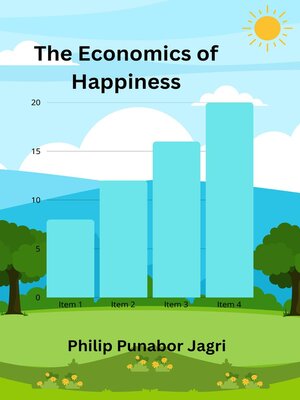
Sign up to save your library
With an OverDrive account, you can save your favorite libraries for at-a-glance information about availability. Find out more about OverDrive accounts.
Find this title in Libby, the library reading app by OverDrive.



Search for a digital library with this title
Title found at these libraries:
| Library Name | Distance |
|---|---|
| Loading... |
For decades, economic success has been narrowly defined by financial growth, corporate profits, and national GDP. However, this profit-driven model has led to rising inequality, environmental degradation, and widespread dissatisfaction, proving that wealth accumulation does not always equate to human well-being. Redefining Prosperity challenges this outdated perspective, arguing for a shift toward an economy that prioritizes people's happiness, social equity, and long-term sustainability. The book critiques the flaws of traditional economic systems while exploring alternative models that promote shared prosperity, ethical business practices, and policies designed to enhance quality of life rather than just financial expansion. At the heart of the book is the argument that economic policies should be centered on well-being, fairness, and sustainability rather than unchecked corporate growth. Drawing on concepts like Gross National Happiness, Doughnut Economics, Universal Basic Income, and the Circular Economy, it presents a compelling case for rethinking prosperity beyond material wealth. The book explores real-world examples, from Bhutan's happiness-based policies to Finland's work-life balance approach, illustrating how societies that prioritize human flourishing tend to have healthier, happier populations. It also critiques consumerism and the obsession with endless economic expansion, showing how these forces have led to stress, exploitation, and environmental crises.
One of the book's key strengths is its practical roadmap for reform, offering actionable solutions for policymakers, businesses, and individuals. It highlights the importance of fair wages, meaningful work, and inclusive economic policies that leave no one behind. It advocates for a shift away from short-term profit motives toward long-term, people-centered economic structures that create security and fulfillment. Moreover, it addresses the role of governments and businesses in creating ethical, community-focused economies that serve broader society, not just a wealthy few. This section provides insights into how individuals, businesses, and governments can contribute to a redefined version of economic success. Ultimately, Redefining Prosperity is a thought-provoking exploration of how economies can evolve to serve humanity rather than exploit it. It challenges conventional wisdom about growth and success, offering an inspiring vision for a more balanced, compassionate, and sustainable future. By advocating for a system where economic progress aligns with human happiness, social justice, and environmental responsibility, the book serves as both a critique of the present and a guide to a better future. Whether you're an economist, policymaker, entrepreneur, or simply someone interested in building a more just world, this book offers invaluable insights into what a truly prosperous society should look like.







